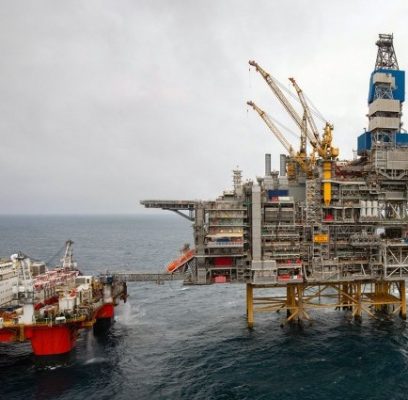Sval Energi, an energy company backed by HitecVision, has received consent from the Norwegian offshore safety regulator to use the facilities of a field located in the North Sea, off the coast of Norway, beyond its useful life original.
The Norwegian Petroleum Safety Authority (PSA) announced on Monday the extension of the useful life of Vale’s field facilities. This decision comes after the PSA authorized the previous operator, Spirit Energy, to extend the use of these facilities until June 11, 2023, in May 2021.
After Sval Energi completed the acquisition of Spirit Energy Norway, the Norwegian operator became Vale’s new field operator and requested a short extension, which the PSA has now granted. This authorization is valid until October 1, 2023.
Located in the North Sea, 16 kilometers north of the Heimdal field, at a depth of 115 metres, the Vale field was discovered in 1991 and the development and exploitation plan (PDO) was approved in 2001.
The field – developed with a subsea template that includes a horizontal production well with a single lateral track, linked to the Heimdal platform by a 16-kilometre-long pipeline – began producing in 2002.
Vale was scheduled to cease production in 2021/22, but new technologies and exploitation methods, as well as measures to improve oil and gas recovery, mean license holders often want to keep existing facilities running. beyond your retirement date, as set forth in the APS.
While flow from Vale’s wells is directed to Heimdal for processing and export, gas is transported via Vesterled to St Fergus in the UK and condensate is transported by pipeline to the Brae field in the British, and later to Cruden Bay.
Sval Energi is the operator of the Vale field, with a 50% stake, and its partners are Lotos E&P, with a 25.757% stake, and PGNiG Upstream Norway, with the remaining 24.243%.
Sval Energi has been actively working on building its portfolio by combining oil and gas resources with decarbonization value chains. One of its recent acquisitions includes deals with Equinor and Suncor.
These transactions add some 34,000 barrels of oil equivalent per day to the Norwegian company’s production.

